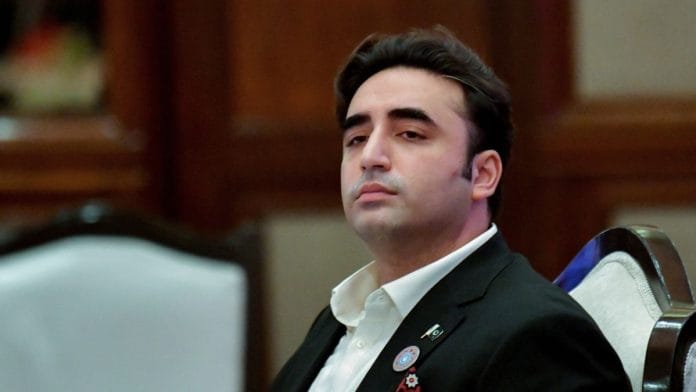New Delhi: In what appears to be a direct diplomatic response to India’s plans of global outreach post Operation Sindoor, Pakistan too has announced a dispatch of a political delegation to major Western capitals, including London, Washington, Paris, and Brussels.
The announcement comes hours after India Saturday announced a comprehensive plan to send seven multi-party parliamentary delegations abroad to present its position on the recent escalation with Pakistan.
The Pakistani delegation will be led by Pakistan People’s Party (PPP) Chairman Bilawal Bhutto Zardari and will include several high-profile political and diplomatic figures, such as Dr. Musadik Malik, Engineer Khurram Dastgir Khan, Senator Sherry Rehman, Hina Rabbani Khar, Faisal Subzwari, Tehmina Janjua, and Jalil Abbas Jilani.
Musadik Malik is the federal minister for climate change and environmental coordination, Dastgir is former minister of foreign affairs of Pakistan, Rehman is a Pakistani politician and journalist, Khar is former minister of state for foreign affairs, Subzwari is a Pakistani politician and a senior leader of the Muttahida Qaumi Movement – Pakistan (MQM-P), Janjua is former foreign secretary, and Jilani is former caretaker minister for foreign affairs.
The mission aims to present Pakistan’s narrative on the recent conflict and counter what Islamabad calls, “Indian propaganda” about cross-border terrorism. Prime Minister Shehbaz Sharif, who announced the initiative, framed it as a necessary diplomatic push “to expose India’s conspiracies and efforts to destabilise regional peace.”
Post Operation Sindoor, which led to armed hostilities along the LoC, both countries mutually agreed to a ceasefire on 10 May, and halted direct military exchanges.
India’s delegations
Earlier Saturday, India unveiled a plan to dispatch seven bipartisan delegations of Members of Parliament to foreign capitals, including the US, UK, and Gulf nations. Each team, comprising lawmakers from across the political spectrum, is tasked with articulating India’s stance on cross-border terrorism and its demands for global accountability.
Among those leading the Indian outreach are high-profile figures such as Congress MP Shashi Tharoor, BJP’s Ravi Shankar Prasad, and NCP’s Supriya Sule. Minister of Parliamentary Affairs Kiren Rijiju emphasised the unity behind the initiative, stating, “In moments that matter most, Bharat stands united.”
Pakistan’s announcement came hours after India’s. “The prime minister has decided to send a diplomatic delegation to counter Indian propaganda and highlight its alleged conspiracies on the global stage,” the Prime Minister’s Office said in a statement, adding that Prime Minister Sharif had reached out to Bhutto-Zardari to lead the effort.
The statement added that the delegation would present Pakistan’s position and challenge India’s narrative in key capitals, including London, Washington, Paris, and Brussels.
Bilawal acknowledged the assignment on social media, writing on X: “I am honored to accept this responsibility and remain committed to serving Pakistan in these challenging times.”
However, his participation is not without controversy. He had drawn sharp criticism for a fiery speech delivered in the wake of India’s suspension of the Indus Waters Treaty, in which he declared, “Whether water flows in this Indus or their blood.”
He later backtracked, saying Pakistan remained open to peace with India—a reversal that raised more doubts about the clarity and consistency of Islamabad’s diplomatic strategy.
Speaking at a ceremony marking the “Day of Gratitude”, an event held to recognise Pakistan’s apparent military response to Indian attacks in Islamabad Friday, Pakistan PM Shehbaz Sharif noted that despite multiple wars between India and Pakistan, these conflicts have yet to resolve their longstanding issues. He then called on India to engage in dialogue to address shared concerns and work toward peaceful coexistence.
“Whether we like it or not, we are there forever as neighbours. It’s up to us whether we want to be unruly neighbours or peaceful ones. We have fought three wars that solved nothing. Rather, they brought more poverty, unemployment, and other problems on both sides. So, the lesson is that we have to sit down at the table like peaceful neighbours and settle our outstanding issues, including Jammu and Kashmir,” he said.
(Edited by Zinnia Ray Chaudhuri)







Copy-cat Pakistan! Someone should make Pakisran realize that by copying India at each and every step doesn’t make it equal with India
.
Bunch of jokers are in power in Pakistan